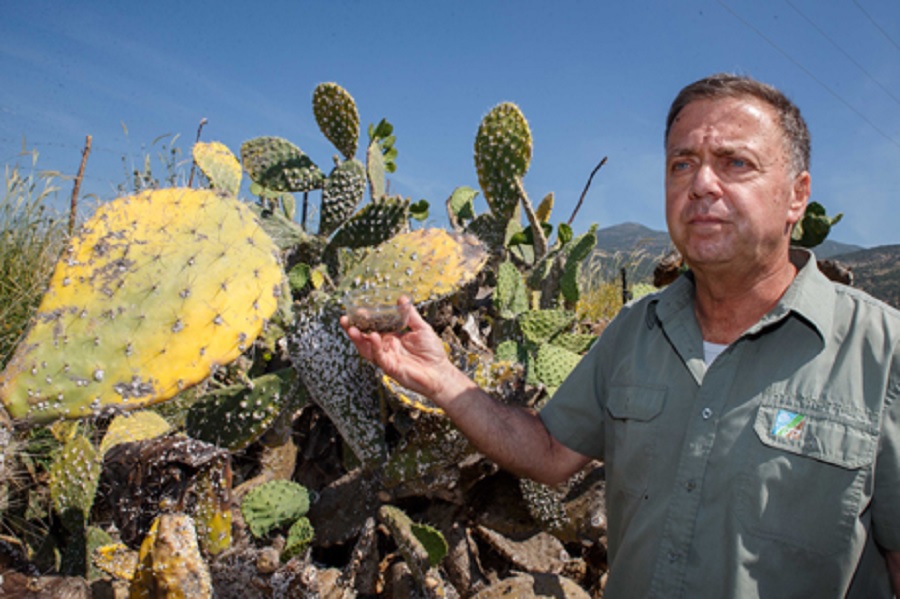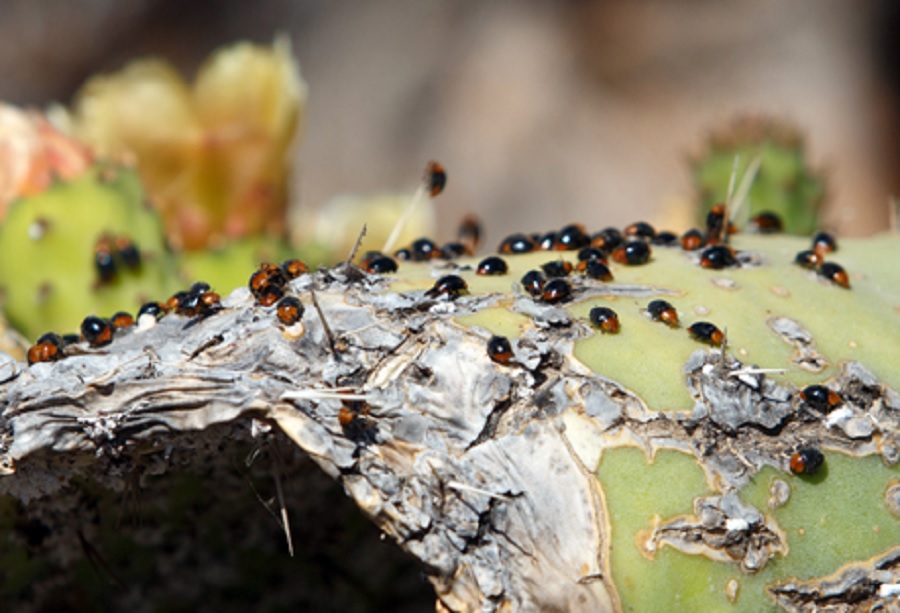One hundred and fifty thousand predatory ladybugs are now being released into nature straight to the thorny hedges of afflicted sabras. Dr. David Brand, Director of the KKL-JNF Forestry Department, said that "over time, we have reason to hope that the ladybugs will halt this phenomenon."
 Chief Forester and Director of the KKL-JNF Forestry Department Dr. David Brand describing the beetles and the sabras plagued by the scale insect. Photo: Ancho Gosh
Chief Forester and Director of the KKL-JNF Forestry Department Dr. David Brand describing the beetles and the sabras plagued by the scale insect. Photo: Ancho Gosh
The sabra bush, which was brought to Israel about two hundred years ago, became a definitive landmark of the Israeli landscape and also an icon for "Israeli-ness" in general. Sabras infected by a pest causing them to die were recently observed in the Hula Valley. The Volcani Center and KKL-JNF scientists identified the pest, Dactylopius opuntiae which is commonly referred to as the cochineal. In Hebrew, the scale insect is known as the etzbarit. The etzbarit is known to be an aggressive species that has been used in the past to eliminate species of prickly pear in South Africa and in Australia.
Experts studying the damage caused by the etzbarit said that as soon as the scale insect was identified, it became clear that something had to be done immediately to destroy it, since its dispersal would endanger sabra bushes all over Israel.

Using the ladybug to save the sabras from scale insects. Photo: Ancho Gosh
A study to assess the extent of the infestation indicates that to date, the scale insect has settled in the Hula Valley and the surrounding area. There are a few places where all the sabras have been killed by the scale insect. Without intervention, the etzbarit will rapidly spread to other vicinities. According to past experience in similar cases, routine use of pesticides is not sufficient, and constant long term impedance of the etzbarit population can be achieved by acclimatization of the natural enemies of the scale insect.
In the process of introducing the specific natural enemies of the etzbarit and monitoring their acclimatization in Israel, a predatory ladybug was selected, Cryptolaemus montrouzieri, which was already acclimated in Israel decades ago, for restraining the scale insect populations. In laboratory experiments conducted with the Sde Eliyahu BioBee Biological Systems, it was found that this beetle is an efficient means to this end.
In an emergency operation performed by Volcani Center scientists and KKL-JNF foresters, 150,000 beetles produced at BioBee have been released for this purpose onto sabra bushes in centers of infestation in northern Israel.